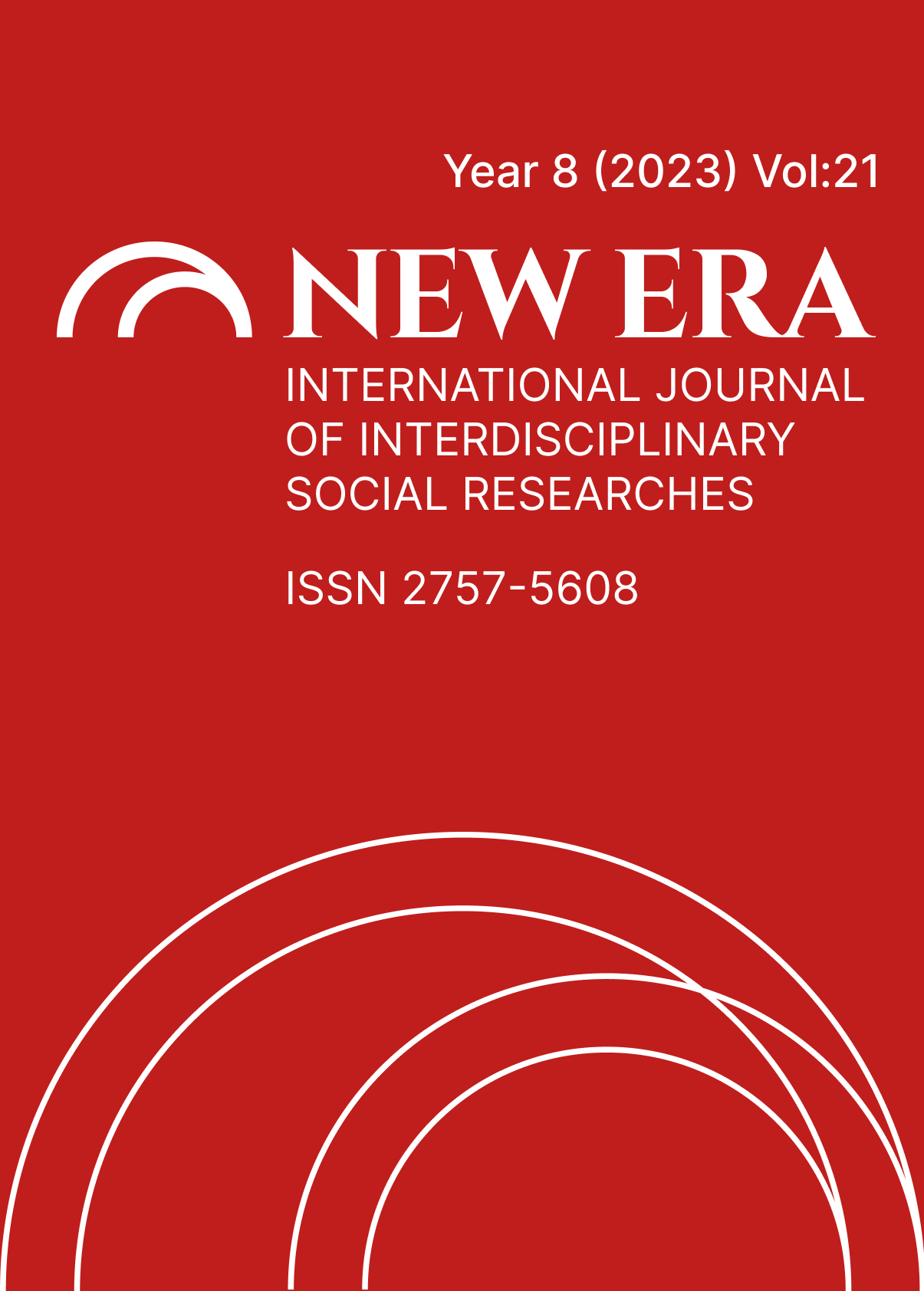MANIFESTATION OF THE INSTRUMENTALİZED BODY IN ART
DOI:
https://doi.org/10.5281/zenodo.10421261%20Abstract
Since the first pictures drawn on cave walls, the human body has been the subject of discussion and analysis in art, philosophy, religion, science, politics, war and many other fields. Sometimes it was manipulated, sometimes it was brought to the agenda directly, and it managed to attract attention each time. The body, which is manipulated while being discussed in the context of religion, has also been instrumentalized in the advertising industry and the production processes of works of art. Attractive female bodies, depicted with increasing passion since the earliest periods of art history, have become symbols of status and wealth in patriarchal society. The situation is no different in the Advertising industry, which does not hesitate to use manipulation effectively to increase sales rates. The body equipped with pleasure, which plays an important role in the marketing of products in capitalist society, has a great impact on the consumer. Likewise, the body, which is an indicator of the war power of the government, has turned into a propaganda tool, and manipulation of the body in this way has become a very effective weapon today. In this case, it is very important that the media and the government act together. The body has been adorned with so many different meanings since ancient times that it has even been possible for the body to become deified. However, behind all these ostentatious maneuvers, the body is nothing more than a substance that is about to rot and disappear by sedimenting. The aim of this article is to reveal how the human body, used as a manipulation tool, changes place and meaning and becomes instrumental in art and many fields related to art over time. In the study, a historical research model from the qualitative research method was applied. As a result, on the one hand, the body, which has been used as a tool for the self-interested ideas of capitalism and the government, has become a material for incredible massacres, destruction, and great corruption with the involvement of the media, while on the other hand, it has been cornered from the areas of nutrition, security and sexuality, which are its primary needs, and unfortunately, The concepts of goodness and beauty have been thrown aside and materialized and instrumentalized.
Key Words: Body, Media, Art, Advertising, Manipulation, Instrumentalization, Propaganda
References
ALTINDERE, Halil. (1999). Çağdaş Sanatta Sanat Nesnesi Olarak Beden, Yüksek Lisans Tezi, Marmara Üniversitesi, Güzel Sanatlar Enstitüsü, İstanbul
AYDINEL, Ateş Evren. (04.07.2014). Cinsellik ve Reklam, (http://www.yoneticilikokulu.com/cinsellik-ve-reklam.html), Erişim: 08.12.2015
BAŞAR, Sevgi. (2006). Toplumsal Değişimler Açısından Picasso’nun Guernica, El Greco’nun 5. Mührün Açılışı Goya’nın Mayıs’ın 3’ü Adlı Resimlerinin İncelenmesi, Yüksek Lisans Tezi, Marmara Üniversitesi, Güzel Sanatlar Enstitüsü, İstanbul
CLARK, Toby. (2011). Sanat ve Propaganda, çev. Esin Hoşsucu, Ayrıntı Yayınları, İstanbul
CORBIN, Alain, COURTINE, Jean-Jacques, VIGARELLO, Georges. (2008). Bedenin Tarihi 1, çev. Saadet Özen, Yapı Kredi Yayınları, İstanbul
CORBIN, Alain, COURTINE, Jean-Jacques, VIGARELLO, Georges. (2011). Bedenin Tarihi 2, çev. Orçun Türkay, Yapı Kredi Yayınları, İstanbul
CORBIN, Alain, COURTINE, Jean-Jacques, VIGARELLO, Georges. (2013). Bedenin Tarihi 3, çev. Saadet Özen, Yapı Kredi Yayınları, İstanbul
DELLALOĞLU, Besim. (2001). Frankfurt Okulu’nda Sanat ve Toplum, Bağlam Yayıncılık, İstanbul
DOĞAN, Ahmet. (2009). Büyük Türkçe Sözlük, Akçağ Yayınları, Ankara
IŞIKDOĞAN, Oktay. (2007). Görsel Kültürde Bir Tüketim Nesnesi Olarak Beden: Video Klipler Örneği, Yüksek Lisans Tezi, Gazi Üniversitesi, Sosyal Bilimler Enstitüsü, Ankara
PARLATIR, İsmail, GÖZAYDIN, Nevzat, ZÜLFİKAR, Hamza. (1998). TDK Türkçe Sözlük, Türk Tarih Kurumu Basımevi, Ankara
PÜSKÜLLÜOĞLU, Ali. (2007). Türkçe Sözlük, Can Sanat Yayınları, İstanbul
SCHILLER, Herbert. (1993). Zihin Yönlendirenler, Pınar Yayıncılık, İstanbul
ŞENSOY, Bihter. (2013). Medyada Beden İmajı: Bazı Televizyon Programlarından Örnekler, Yüksek Lisans Tezi, T.C. Afyon Kocatepe Üniversitesi, Sosyal Bilimler Enstitüsü, Afyonkarahisar
YILDIRIM, Belma. (2008). Batı Sanatında İnsan Bedeni ve Değişen Anlamı, Yüksek Lisans Tezi, T.C. Marmara Üniversitesi, Eğitim Bilimleri Enstitüsü, İstanbul
YILMAZ, Mehmet. (2012). Sanatın Günceli Güncelin Sanatı, Ütopya Yayınevi, Ankara
Downloads
Published
How to Cite
Issue
Section
License
Copyright (c) 2023 NEW ERA INTERNATIONAL JOURNAL OF INTERDISCIPLINARY SOCIAL RESEARCHES

This work is licensed under a Creative Commons Attribution-NonCommercial 4.0 International License.


